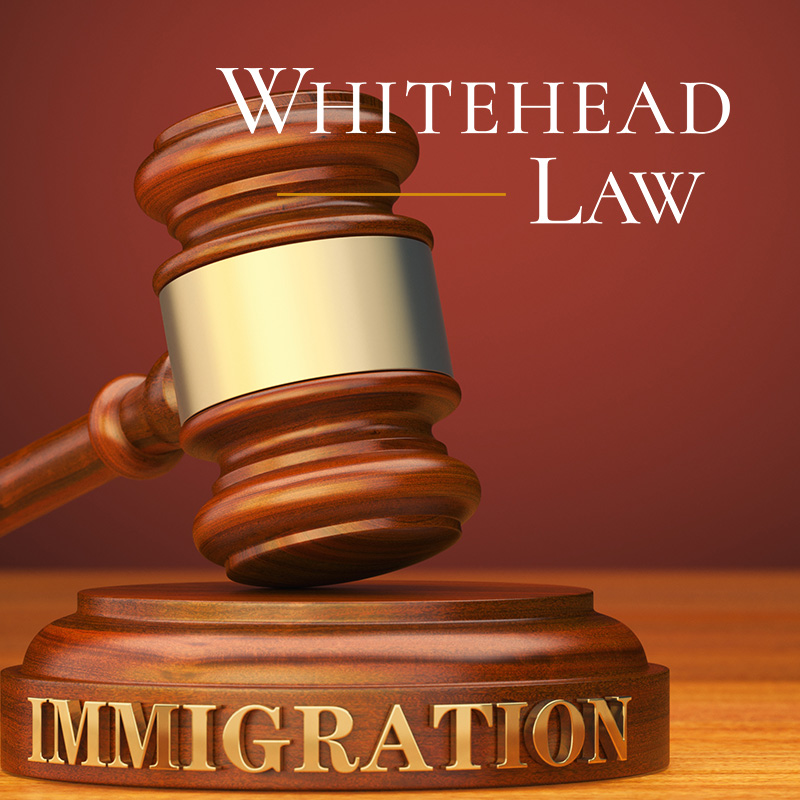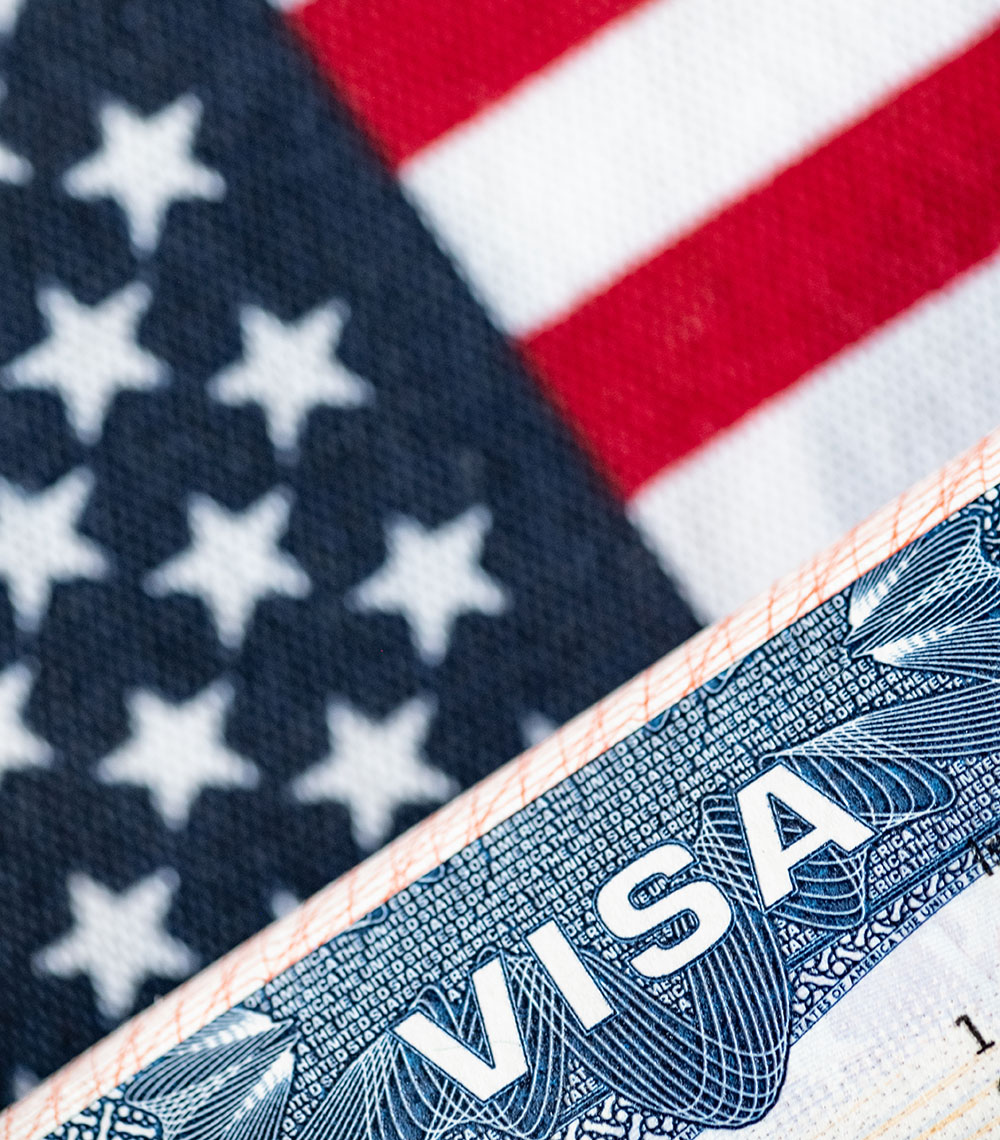
We Specialize in Immigration Law
Have any questions regarding Immigration? Call us for immediate answers.
If your loved one has found themselves in the daunting situation of being detained by ICE or immigration authorities, take heart—they will have a moment to reach out to you. When they do, be sure to note their Alien or Immigration case number, as this information is crucial. We urge you to contact us immediately; we are here to support you during this challenging and uncertain time.
Your loved one deserves a dedicated team by their side, and together, we can navigate this journey.

Need help with the following? Whitehouse Law can help!
Asylum Petitions
What is asylum?
Asylum is a form of legal protection granted to individuals fleeing persecution or having a well-founded fear of persecution in their home country.
Who can apply?
Anyone who is present in the U.S. and believes they would be in danger if returned to their home country can apply for asylum.
What are the grounds for asylum?
Persecution can be based on race, religion, nationality, membership in a particular social group, or political opinion.
How do you apply?
Asylum seekers typically file a form, like USCIS Form I-589, to apply for asylum. Contact Whitehouse Law for assistance.
What happens if granted asylum?
If granted asylum, the individual is protected from being removed to their home country and can access various rights, including the ability to work and eventually apply for permanent residency and citizenship.
We Provide Representation at Master Hearings
Your Right to Representation
Respondents in immigration court have the right to be represented by a lawyer or accredited representative at no cost to the government.
Immigration Judge's Role
The Immigration Judge will explain the charges against the respondent, their rights, and their obligations, including the right to legal representation.
Rescheduling for Representation
If a respondent is not represented, the Immigration Judge may reschedule the hearing to allow the respondent time to seek legal counsel, says a Williams Law article.
Importance of Representation
Legal representation can significantly improve a foreign national's chances of success in immigration court.
Master Calendar Hearing Overview
The master calendar hearing is a procedural hearing where the judge handles matters like scheduling, pleadings, and other initial steps in the removal process
Individual Merits Hearing
If a foreign national contests the charges or seeks relief from removal, an individual merits hearing will be scheduled to address these issues.
Adjustment of Immigration Status through family petitions, including marriage or spouse petitions
Family Relationship
The foreign national must have a qualifying family relationship with a U.S. citizen or permanent resident (e.g., spouse, child, parent, sibling).
Petition
The U.S. citizen or permanent resident must file a petition with the U.S. Citizenship and Immigration Services (USCIS) on behalf of the foreign national, such as Form I-130 (Petition for Alien Relative).
Adjustment of Status Application
Once the petition is approved, the foreign national can file Form I-485, Application to Register Permanent Residence or Adjust Status, to apply for a Green Card.
Green Card
If the application is approved, the foreign national receives a Green Card, granting them permanent residency in the United States.
Specific examples:
Spouse Petition
A foreign national who marries a U.S. citizen becomes an immediate relative and can apply for a Green Card based on the marital relationship.
K-1 Visa
A foreign national who marries a U.S. citizen becomes an immediate relative and can apply for a Green Card based on the marital relationship.
Family-Based Green Cards
U.S. citizens and permanent residents can sponsor family members (spouses, unmarried children, parents, etc.) to immigrate to the U.S. as permanent residents.
Important Considerations:
Eligibility
The foreign national must meet specific eligibility requirements based on their relationship with the U.S. citizen or permanent resident.
Concurrent Filing
Sometimes, the I-485 application can be filed concurrently with the I-130 petition or after its approval.
Requirements
Applicants may need to provide evidence of the family relationship, such as marriage certificates, birth certificates, or other documentation.
Fees
There are application fees associated with both the I-130 petition and the I-485 application.
Interview
Applicants may need to attend an interview with USCIS officers.
Immigration detentions and petitions for bond
Some detained immigrants may be released on bond while proceedings remain pending. The Department of Homeland Security (DHS) makes an initial custody determination. If DHS refuses bond or sets it too high to pay, you may request that the immigration judge schedule a bond redetermination hearing.
Specialty Visas
A Specialty Visa, specifically an H-1B visa, is a temporary nonimmigrant visa that allows U.S. employers to hire foreign workers in specialty occupations. These occupations generally require a bachelor's degree or its equivalent and the application of a body of specialized knowledge. The H-1B visa is valid for three years and can be renewed for an additional three.
U-Visa Petitions
A U-Visa petition is a request to the United States Citizenship and Immigration Services (USCIS) for a nonimmigrant visa, specifically for victims of qualifying criminal activity who have suffered substantial physical or mental abuse and are willing to assist law enforcement in the investigation or prosecution of the crime. It provides temporary lawful status, employment authorization, protection from removal, and a pathway to a green card.
VAWA – Victims of Domestic Violence Petitions
The Violence Against Women Act, commonly known as VAWA, is a vital piece of legislation that was passed by Congress in 1994, aimed at combating domestic violence, sexual assault, dating violence, and stalking. One of the most compassionate aspects of VAWA is its provision for victims of domestic abuse, offering them a special pathway to lawful immigration status. Many of these individuals find themselves in a heartbreaking situation where they must rely on their abuser to secure their immigration status, which can further entrap them in a cycle of abuse.
With the option of VAWA self-petitioning, victims are allowed to reclaim their autonomy and safety. This process will enable individuals who are close relatives—such as spouses, children, or parents—of U.S. citizens or lawful permanent residents to apply for immigration status independently. It recognizes the deep pain and fear that victims endure and provides a lifeline, enabling them to escape harmful situations without having to depend on their abuser's cooperation. VAWA embodies a commitment to support and empower those who have suffered, helping them find their strength and create a new, safer life free from violence.

Helpful Links
To check on the status of any active or closed Immigration case handled by the Executive Office of Immigration Reviews (EOIR), please visit this website. You must provide your Alien number/immigration case number, Automated Case Information.
Please visit this website to check on the status of any petition or request made to U.S.C.I.S. ( U.S. Citizenship and Immigration Services). You will need your immigration information from the receipt number/immigration notice. USCIS | myUSCIS Home Page.
